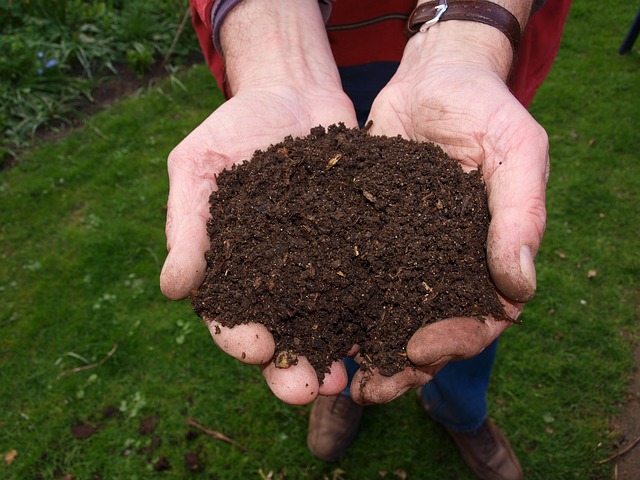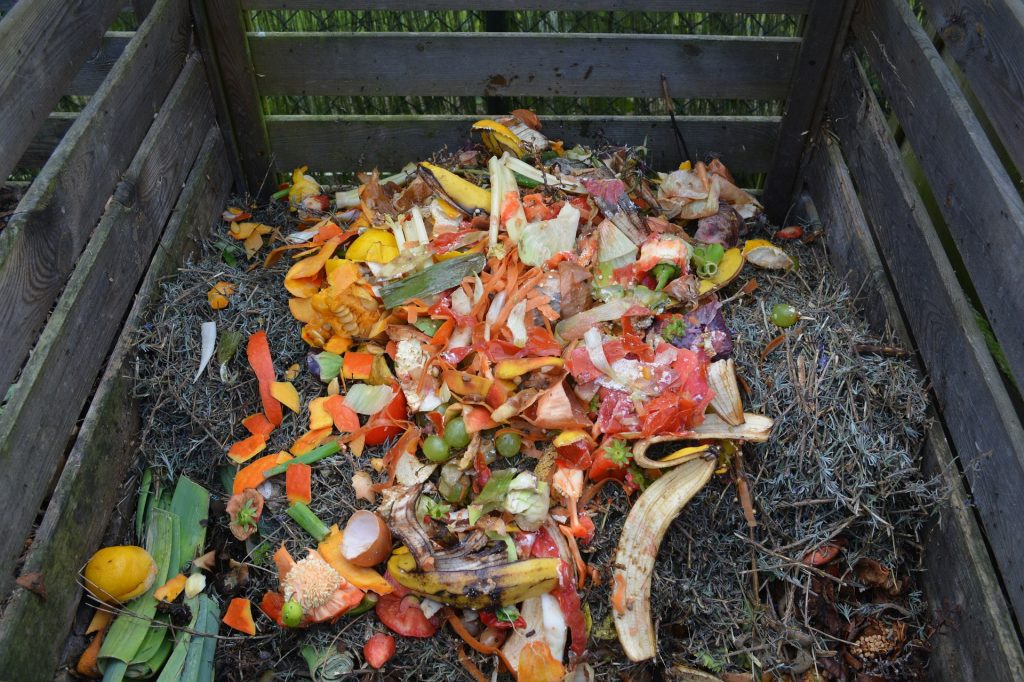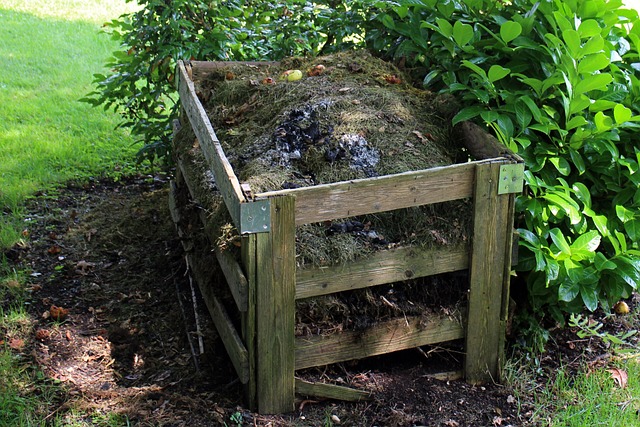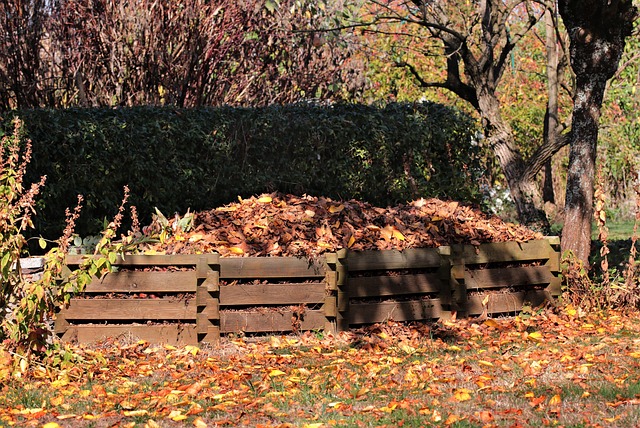Ever wondered how to make compost? Composting is a fantastic way to turn kitchen scraps and garden waste into nutrient-rich goodness for your plants. This natural process not only benefits your garden, but also reduces landfill waste and promotes a sustainable lifestyle.

A supply of good quality compost is key to having a successful vegetable garden, and its even better when you make your own. Not only do you reduce you kitchen waste, but you save money by replenishing your soil’s nutrients for free.
Making good quality compost is a bit like baking a cake. You need the right ingredients in the right proportions, otherwise it can turn into a slimy mess.
How to Make Compost at Home
Let’s explore the key ingredients for a successful compost pile. A good recipe needs a balanced mix of “green” and “brown” materials.
Green material for compost includes:
- grass clippings
- green leaves
- shrub prunings
- kitchen scraps
- tea leaves
These materials are rich in nitrogen, which helps to break down the organic matter.
Brown material for compost includes:
- stems and twigs
- shredded paper
- eggshell
- wood chippings
- straw
- dried leaves
- evergreen clippings
Brown materials provide the necessary carbon for the composting process, ensuring a healthy balance and preventing unpleasant odours.

Now for the Cooking…
To get good quality compost, aim for alternate layers of green and brown material. Begin with a layer of brown material at the bottom of your heap. This allows the air to circulate. Then add a layer of green material. Continue this layering, adding more material when you have it.
For a good consistency and optimal breakdown of matter, there should roughly be three times the amount of brown to green.
Mix up your compost by occasionally turning with a garden fork it to allow air to circulate, and cover it with an old piece of carpet or ply wood to keep the heat in. This will help your compost to mature more quickly.
To achieve optimal results, it’s crucial to maintain the right moisture levels in your compost pile. The ideal moisture content is similar to that of a damp sponge. Too much water can cause the pile to become compacted and anaerobic, while insufficient moisture slows down decomposition. Regularly monitoring and adjusting the moisture levels will help create a thriving compost ecosystem.

What Will Make Compost Break Down Faster?
Good compost can take anything from six months to two years to fully mature into a fibrous, crumbly texture. If you’re looking to accelerate the process, here are some tips to turbocharge your compost pile:
Shredding or Chopping: Cutting your compost material into smaller pieces creates more surface area for microorganisms to work their magic. Use a shredder or a sturdy pair of garden shears to break down larger materials like leaves, branches, or food scraps.
Balance Carbon and Nitrogen: The right carbon-to-nitrogen ratio is crucial for decomposition. Aim for a balance of roughly three times more carbon (browns) than nitrogen (greens). Too much carbon slows down the process, while excessive nitrogen can cause a stinky pile. Adjust the ratio by adding more greens or browns as needed.
Proper Moisture Level: Keeping your compost pile moist but not waterlogged is essential. Microorganisms require moisture to thrive and break down organic matter effectively. A damp sponge-like consistency is ideal. If it gets too dry, water it gently. If it’s too wet, add dry carbon-rich materials to absorb excess moisture.
Oxygen and Aeration: Turning or mixing your compost pile regularly ensures proper airflow and oxygenation. This promotes the growth of aerobic bacteria, which thrive in the presence of oxygen and help decompose the organic matter. Every few weeks, use a garden fork or compost turning tool to give the pile a gentle stir.
Adding Activators: Using compost activators can give your pile a boost. These are substances rich in nitrogen or microorganisms that quickly jumpstart decomposition. You can use items like garden soil, compost from a previous batch, or commercial compost accelerators following the package instructions.
Layering and Balancing: Aim for a well-layered compost pile, alternating between green and brown materials. This helps create a balanced and productive environment for decomposition. Mix the layers together, ensuring an even distribution of carbon and nitrogen-rich materials.

What Shouldn’t be Composted?
While composting is a fantastic way to recycle organic waste and create nutrient-rich soil, some materials are better left out of the pile to avoid potential issues. Here are some items you should avoid composting:
- Meat and Fish: Including meat, poultry, fish, or their bones can attract pests like rodents and flies. These materials may also break down slowly and emit unpleasant odors.
- Dairy Products: Dairy items such as milk, cheese, yogurt, or butter should not be composted. These can also attract pests and produce unpleasant smells.
- Oily or Greasy Materials: Grease, cooking oil, or oily food scraps create a clumpy, anaerobic environment in your compost pile. This can slow down the decomposition process and lead to unpleasant odors. Instead, wipe excess grease before composting food scraps.
- Diseased Plants or Weeds with Seeds: Avoid composting plants that are diseased or infested with pests. These may not fully decompose and could potentially spread the disease or pests when you use the compost in your garden. Weeds that have gone to seed should also be kept out of the compost pile to prevent their spread.
- Synthetic or Treated Materials: Synthetic materials, such as plastics, glossy paper, metals, or treated wood, should never be composted. These materials do not break down naturally and can contaminate the compost.
- Pet Waste: While animal manure, like horse or cow manure, can be composted, it’s best to avoid composting pet waste. Pet faeces from cats and dogs can contain harmful pathogens that are not effectively broken down during typical composting processes.
Remember, maintaining a healthy compost pile requires a careful balance of ingredients. By avoiding these non-compostable items, you can ensure a successful composting experience while preventing potential issues with pests, odors, or contamination.
Now you have the know-how, get out there and make compost for garden plants, seeds, your veggie patch and much more! Happy composting!
